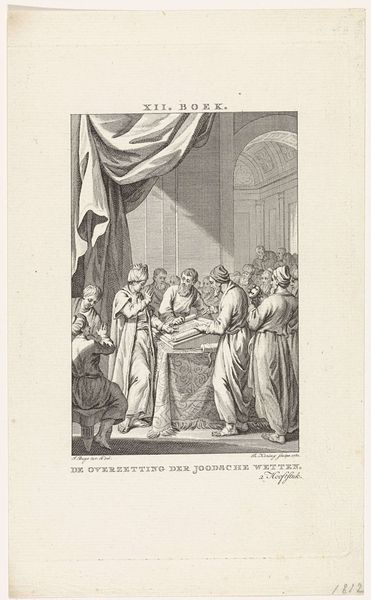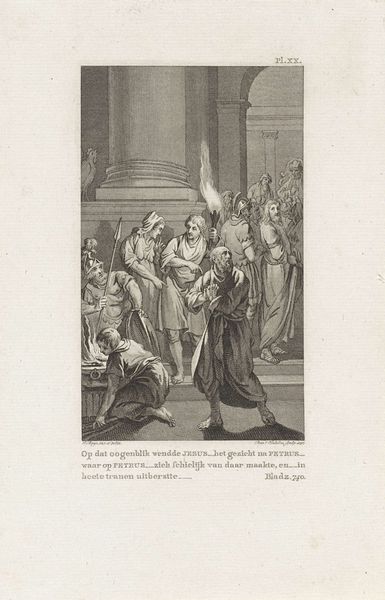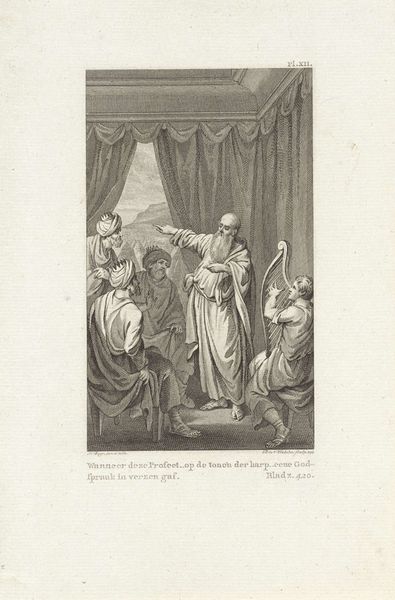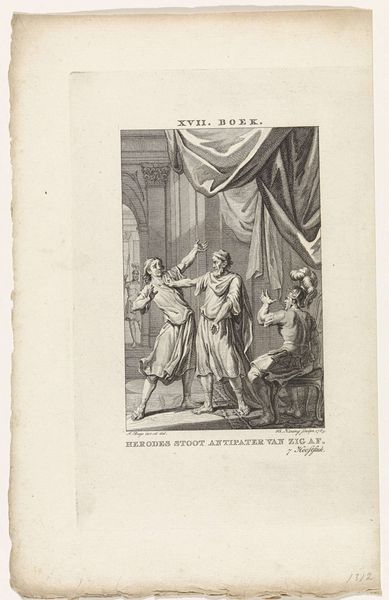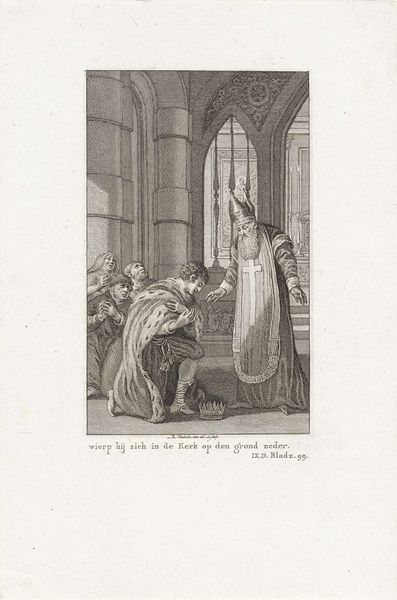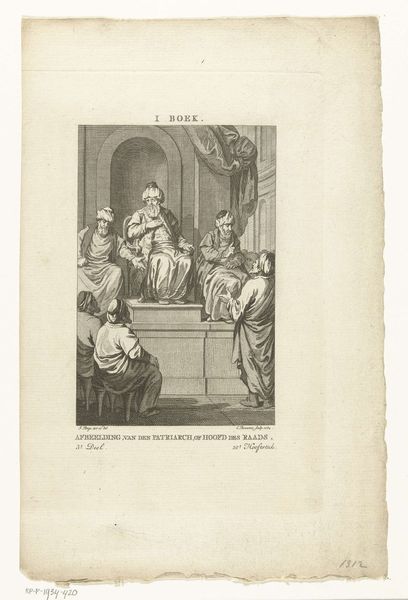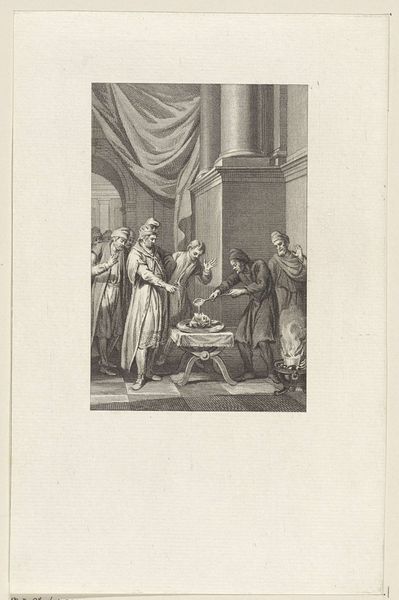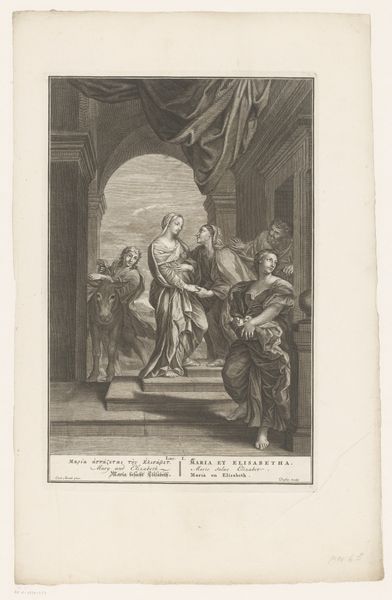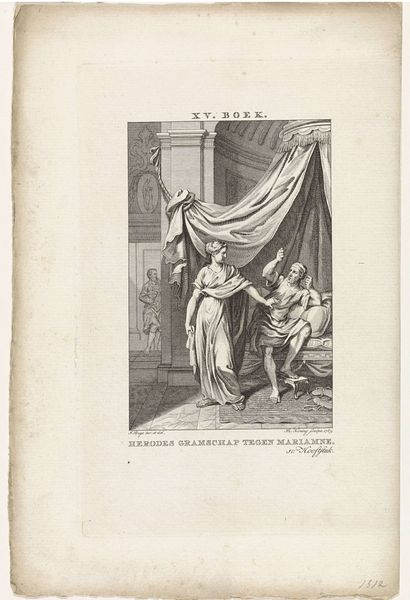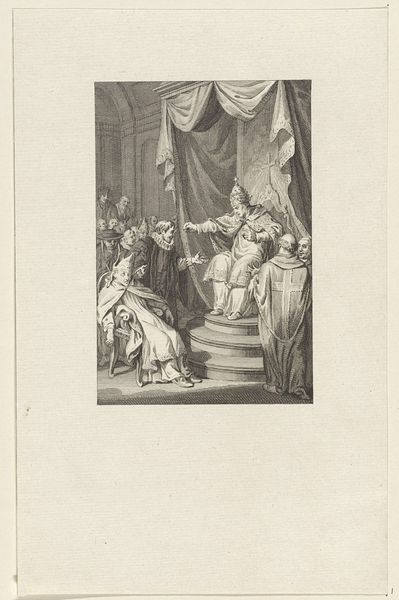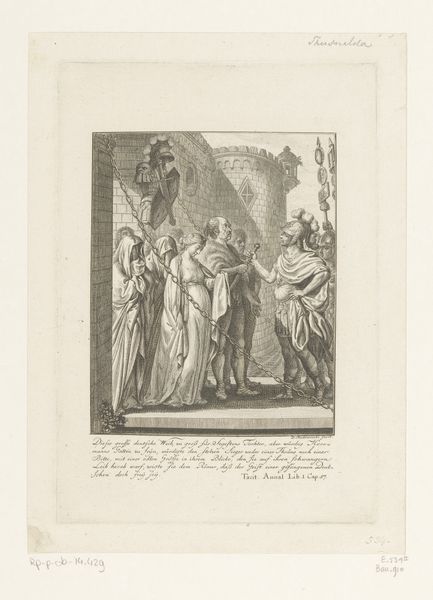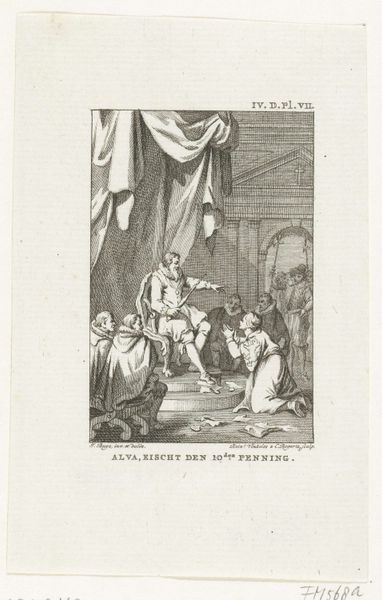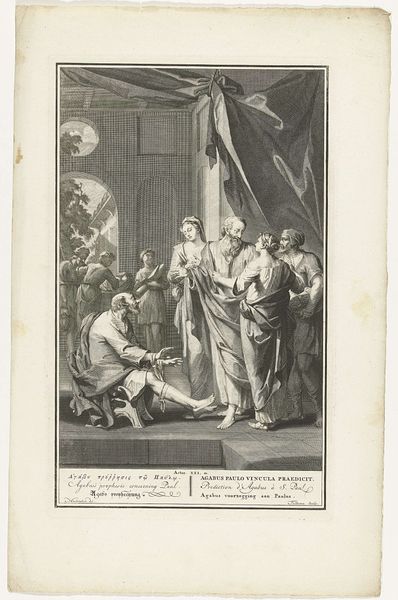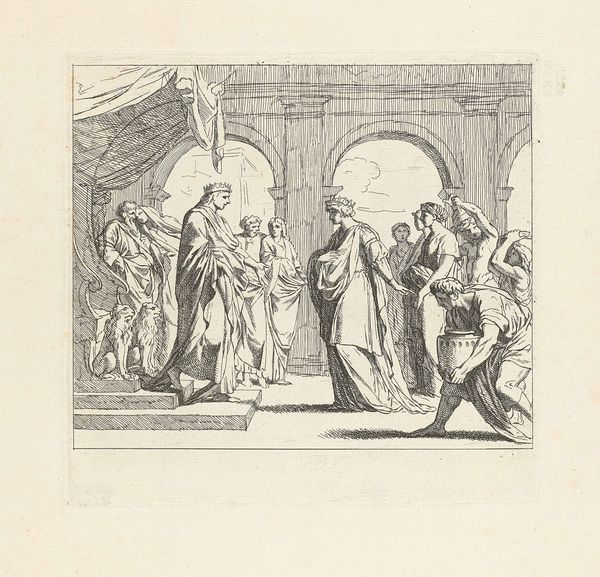
Dimensions: height 235 mm, width 144 mm
Copyright: Rijks Museum: Open Domain
Theodoor Koning engraved this depiction of 'Jojada roept Joas uit tot koning van Juda' in the 18th century. Note the central figure of Jojada, the high priest, his arms spread wide in a gesture of declaration. This posture, reminiscent of ancient orators and religious figures, embodies authority. The raised arms signify divine endorsement and power, a motif that echoes across time. Consider its appearance in depictions of Roman emperors or even early Christian art, where similar gestures denote leadership and benediction. This pose, deeply embedded in our collective memory, transcends its immediate context. The act of 'raising up' becomes a powerful, recurring symbol. Psychologically, it taps into primal associations of strength, protection, and the bestowal of grace, resonating in our subconscious understanding of power dynamics. Here, the emotional impact is clear: a sacred proclamation, a transfer of authority that engages viewers on a visceral level. The symbol of the raised arm has persisted, evolved, and been reinterpreted, illustrating the non-linear, cyclical nature of cultural memory.
Comments
No comments
Be the first to comment and join the conversation on the ultimate creative platform.
